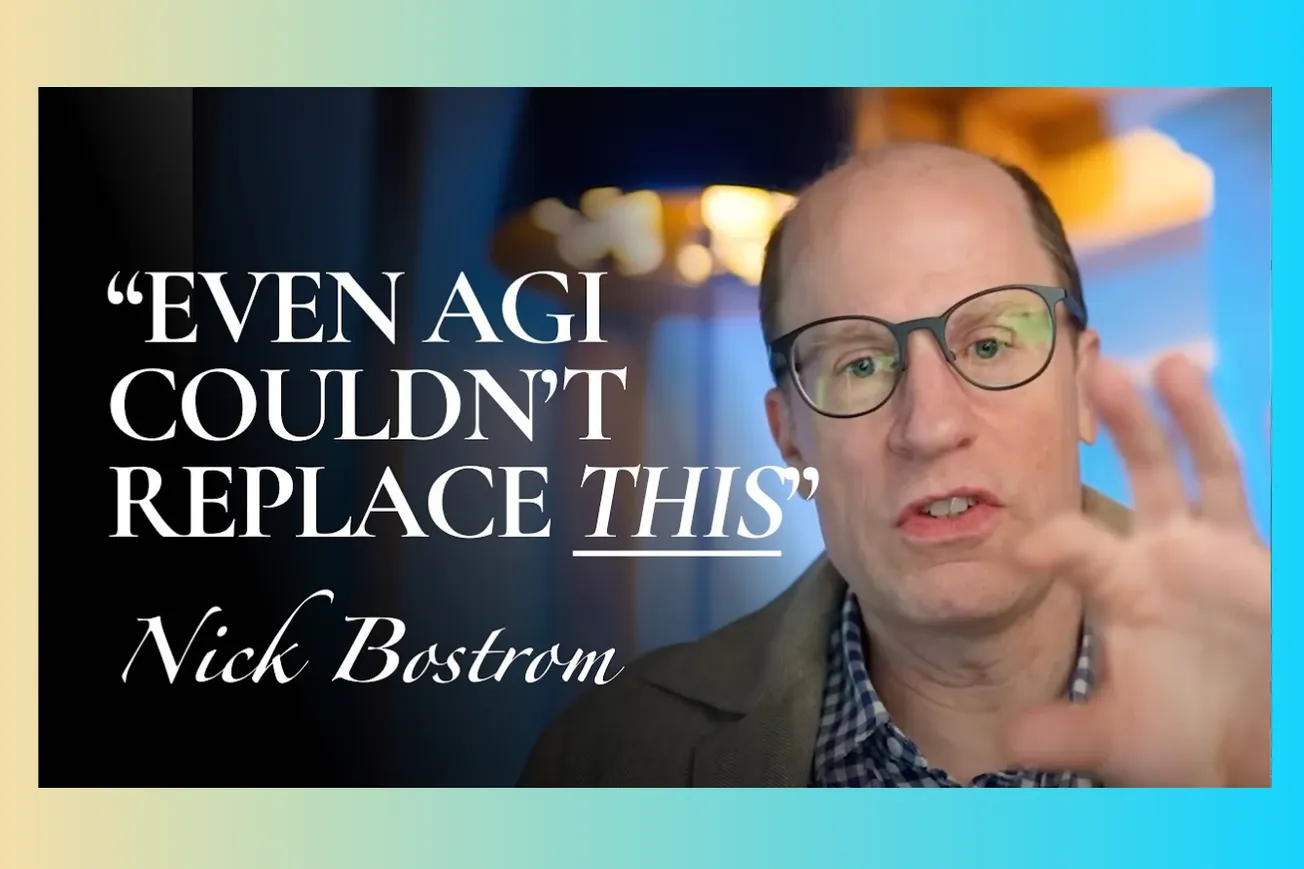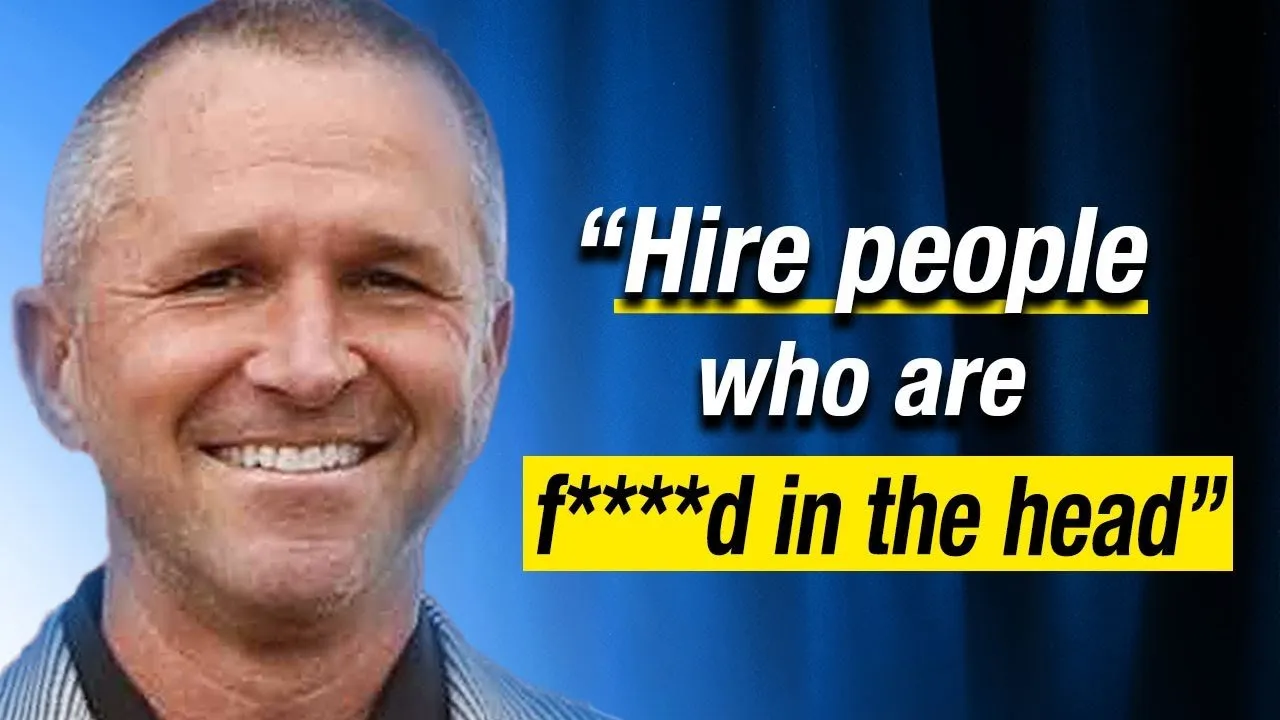Table of Contents
Nick Bostrom's "Deep Utopia" exposes which human activities will remain valuable as AI surpasses us in nearly everything—and why your career strategy needs to change now.
Oxford philosopher Nick Bostrom reveals the three investment strategies that remain valuable as artificial intelligence advances toward surpassing human capabilities in virtually all domains.
Key Takeaways
- Learning skills will outlast production capabilities because directly downloading knowledge requires reading and modifying trillions of brain synapses—a task for mature superintelligence only
- Relationships inherently require human participation by definition, making parenting, friendship, and social bonds resistant to AI replacement regardless of technological capability
- Capital investments will dramatically outperform labor investments as AI makes human skills increasingly obsolete and abundant in the marketplace
- Deep Utopia represents technological maturity where AI surpasses humans in all tasks, making most current work and leisure activities instrumentally pointless
- Five pillars sustain meaningful life in post-scarcity: hedonic wellbeing, experience texture, autotelic activity, artificial purpose, and social cultural entanglement
- Current moment represents peak opportunity for global purpose and meaning—never again will individual actions carry such enormous stakes for humanity's future
- Human psychology evolved assuming scarcity and necessity, creating potential mismatches between our nature and a world where nothing requires human effort
- The theological parallels between technological utopia and religious afterlife concepts suggest convergence between naturalistic and spiritual worldviews at ultimate conclusions
Timeline Overview
- 00:00:00-02:15 - Introduction to AGI-Proof Strategies: Framework for understanding which human activities remain valuable as AI capabilities advance toward superintelligence
- 02:15-07:45 - Learning Over Production Priority: Why acquiring knowledge and skills will outlast creating content, as neurotechnology for direct learning remains extremely challenging
- 07:45-11:41 - Relationships Over Things Focus: How human connections provide inherent value that cannot be replicated by functionally superior AI alternatives
- 11:41-17:40 - Capital Over Labor Investment: Historical patterns showing how technological disruption shifts economic returns from workers to asset owners
- 17:40-21:52 - Deep Utopia Leisure Crisis: How technological maturity makes most current recreational activities instrumentally meaningless despite their current appeal
- 21:52-42:33 - Five Pillars of Meaningful Life: Detailed exploration of hedonic wellbeing, experience texture, autotelic activity, artificial purpose, and social entanglement
- 42:33-52:54 - Boredom and Interestingness Problems: Distinguishing subjective boredom from objective boringness and the challenge of fundamental novelty in immortal existence
- 52:54-1:05:44 - Purpose and Human Nature: Why global-scale meaning requires imperfect worlds and how current moment represents peak opportunity for consequential action
- 1:05:44-1:08:00 - Theological Convergence: How advancing through physicalist assumptions leads to conclusions remarkably similar to traditional religious frameworks
The Three AGI-Proof Investment Strategies
- Learning over production represents the most robust near-term strategy because acquiring knowledge requires personal neural modification that remains technologically infeasible
- Direct skill downloading would require reading current synaptic configurations, interpreting encoded information, calculating necessary changes without personality disruption, and physically implementing modifications across billions of connections
- While AI can generate superior content across domains—better scripts, more beautiful conversations, more insightful analysis—understanding that content still requires traditional human learning methods
- This creates asymmetric opportunities where production becomes commoditized while comprehension retains premium value for extended periods
- The philosophical parallel suggests contemplative life as humanity's highest calling, ironically making intellectual pursuits the last human monopoly before technological maturity
- Investment in learning compounds differently than production skills, as understanding enables navigation of rapidly changing technological landscapes
Reading, thinking, discussing, and working on self-development remain irreplaceable human activities until mature superintelligence emerges.
Why Relationships Trump Everything Else
- Human relationships derive value partly from their specific history and continuity between particular individuals rather than functional optimization alone
- Even if AI parents could provide superior childcare across all measurable dimensions, the existing parent-child relationship contains irreplaceable value from its authenticity
- Certain professions—priest, prostitute, politician—maintain demand specifically for human provision regardless of AI capability improvements
- The constitutive nature of relationships means they cannot be optimized away without destroying their essential character
- Social bonds create natural purposes that survive into technological maturity because they depend on ongoing commitment between specific individuals
- Legacy relationships from current commitments will carry forward even when new artificial relationships become possible
This explains why investment in developing meaningful human connections provides recession-proof value in an AI-dominated economy.
The Capital Revolution Accelerates
- Historical pattern shows labor market shocks redistribute wealth between workers and asset owners depending on scarcity dynamics
- Post-Black Death Europe represented peak worker bargaining power due to labor scarcity, resulting in unprecedented peasant prosperity and leisure time
- AI advancement reverses this dynamic by making human labor abundant while capital becomes increasingly scarce and valuable
- Professional education with long payback periods—law school, medical school—faces particular risk as AI capabilities advance faster than career development timelines
- Human capital becomes a depreciating asset requiring significant discounting for uncertainty about AI development speed and regulatory responses
- Early career professionals should prioritize capital accumulation over skill development when those skills face AI substitution risks
The transition period favors those who can shift from earning through labor to earning through ownership before the transformation completes.
Deep Utopia's Leisure Paradox
- Technological maturity creates a "post-instrumental condition" where almost nothing requires human effort to achieve desired outcomes
- Current leisure activities lose their original purposes when superior alternatives become available through technology rather than personal effort
- Gymnasium exercise becomes pointless when pills provide identical health benefits without time investment or physical discomfort
- Childcare activities face potential outsourcing to AI systems that perform every function more effectively than human parents
- The instrumental reasons for most hobbies, sports, and recreational pursuits disappear when technology can deliver the same outcomes effortlessly
- This creates an existential challenge where both work and leisure lose their traditional meaning and motivation
The paradox suggests that solving all practical problems creates new philosophical problems about the nature of worthwhile human activity.
Five Pillars Supporting Meaningful Existence
- Hedonic wellbeing acknowledges that advanced neurotechnology could provide continuous profound pleasure exceeding current peak human experiences
- Experience texture avoids the "drugged-out pleasure blob" problem by connecting intense enjoyment to valuable experiences like beauty appreciation, truth understanding, and moral contemplation
- Autotelic activity preserves the value of doing rather than merely receiving, allowing engagement in activities valuable for their own sake rather than outcomes
- Artificial purpose creates meaningful goals through carefully constructed challenges that require personal effort to achieve, similar to games but potentially much more elaborate
- Social cultural entanglement maintains natural purposes through existing relationships, traditions, and commitments that constitutively require human participation
These pillars work together to construct meaningful existence even when instrumental necessity disappears from human life.
The Necessity Problem and Human Nature
- Human psychology evolved assuming constant scarcity, predator threats, and survival challenges that required continuous effortful response
- Modern obesity epidemics demonstrate how removing environmental constraints creates mismatches between evolved psychology and current reality
- Technological maturity threatens to expand this mismatch dramatically, potentially requiring fundamental changes to human nature itself
- The "Unabomber extreme" represents one response—believing even current technology provides insufficient necessary activities for psychological health
- Global purpose and meaning historically depended on genuine stakes and consequences that technological solutions eliminate
- Current moment represents peak opportunity for consequential action, as individual choices may determine humanity's billion-year trajectory
The deeper question involves whether humans can adapt to abundance or whether meaning requires struggle and limitation.
Theological Convergence and Ultimate Questions
- Deep Utopia thought experiments parallel Christian afterlife concepts in surprising ways—preserved individuality, resolved social problems, contemplative focus
- Starting from physicalist assumptions and thinking through ultimate implications leads to conclusions structurally similar to religious frameworks
- The simulation argument and AI ethics questions connect contemporary philosophy to traditionally theological concerns about levels of reality
- Derek Parfit's mountain metaphor suggests different approaches to ultimate questions may converge at shared peaks despite different starting points
- Six-day lecture structure deliberately echoes creation narrative, acknowledging the theological aesthetic of utopian speculation
- Both religious and naturalistic thinking grapple with identical fundamental questions about optimal human futures beyond contingent limitations
This convergence suggests deep philosophical problems transcend the religious-secular divide when pursued to their logical conclusions.
Common Questions
Q: Should I change my career plans based on AI advancement?
A: Focus on learning and skill acquisition over production roles, while building capital investments and meaningful relationships.
Q: How long do we have before these changes happen?
A: Timelines remain uncertain, so hedge your bets with useful skills while AI transition potentially delays, but prepare for rapid change.
Q: Is Deep Utopia actually desirable?
A: From inside perspective of living it, yes; from outside perspective of dramatic storytelling, less appealing—but we should optimize for inhabitants not observers.
Q: What should I do with this information?
A: Current moment offers peak opportunity for consequential action; if you want global purpose and meaning, "knock yourself out now."
Q: Will humans remain human in technological maturity?
A: Fundamental changes to human nature may become necessary to match psychology with abundance-based rather than scarcity-based environments.
The path forward requires balancing preparation for radical futures with engagement in humanity's current pivotal moment.
Conclusion
Bostrom's analysis reveals a profound irony: as we approach the greatest transformation in human history, traditional humanistic values—learning, relationships, contemplation—become our most practical investments. The three AGI-proof strategies aren't just career advice; they're a blueprint for maintaining human relevance during the transition to technological maturity.
The deeper insight concerns timing and stakes. If Bostrom is correct that we're approaching a critical juncture determining humanity's billion-year trajectory, then current opportunities for meaningful action will never be greater. Whether that leads to Deep Utopia's contemplative abundance or something else entirely, the window for consequential human agency is now. Those who want global purpose and meaning should indeed "knock themselves out now"—because it's never going to be more important than it is right now.





